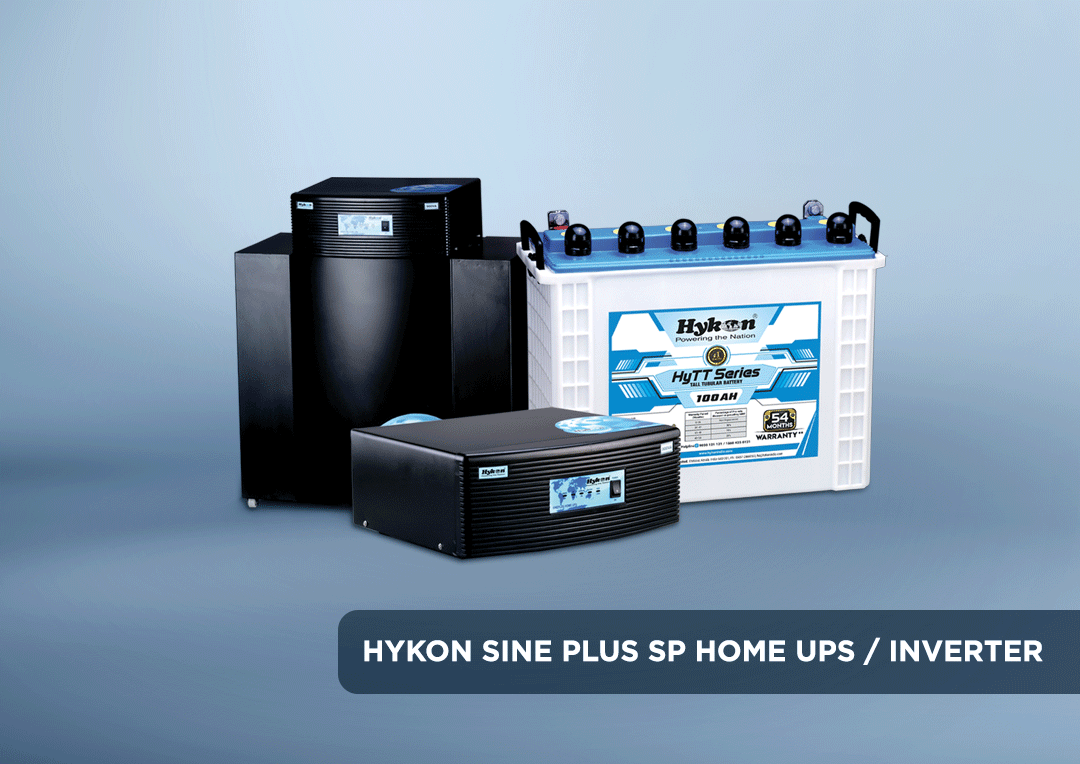
A solid power backup solution has become an
increasingly popular demand amongst desired home buyers nowadays. The arrival of inverters in Indian markets during the late ’70s has been a boon for many.
Still, the inverter holds its position as a favorite mainly because of its affordability.
As the name implies an Inverter is a device
that inverts direct current (DC) to alternate current (AC). Almost all home
appliances and electronic devices can be functioned using alternating current. The inverter draws its power from a battery and supplies it during the outage of power.
Inverters can be useful for a wide range
of applications ranging from small portable electronic devices, home appliances
to X-ray machines and even satellites.
Inverters can be classified into different types
based on their output characteristics, input source, connections, load, etc.
On the basis of output characteristics,
inverters can be divided into three
·
Square Wave Inverters
These are the simplest form of the inverter which
converts DC into AC but its output voltage waveform is a square wave. They don't
have much application as the majority of the appliances cannot be worked in square wave
form.
·
Sine Wave Inverters
Sine Wave Inverters or Pure Sine Wave
Inverters are considered as the cleanest waveform. Even though they are
expensive Pure Sine Wave Inverters are widely used in the commercial as well as
residential purposes.
·
Modified Sine Wave Inverters
The output voltage Waveform of this type
of the inverter is neither Square Wave nor Sine Wave, whereas it resembles the shape of
Sine Waveform.
According to the type of load, Inverters
can be classified into.
Single-phase inverters are of two types, Half Bridge Inverters, and Full-Bridge Inverters.
On the basis of the source of inverters,
they are divided into Current Source Inverters and Voltage Source Inverters.
There are many factors, that can be taken
into consideration before choosing the right inverter for your purpose. Let's
look into some terminologies that will help us to get a better understanding of
inverters in general.
Inverters need to supply Peak or Surge
which indicates maximum power an inverter can supply for a brief period and Typical which stands
for the usual power an inverter supplies on a steady basis. Typical is the continuous
rating which in general is less than a surge. An average power of an inverter is
usually much less than surge or typical and it is not a deciding factor while
choosing an inverter.
As a first step before choosing an inverter
should define your needs and keep in my that factors like electrical standards,
power capacity and quality, safety certification, battery charging features,
efficiency are all equally important.
Like many other fields, technical
advancement has a great impact on the inverters market. Very soon we will witness smart inverters controlling
our power backup requirements efficiently.
Hykon’s Sine Inverters with DSP based
intelligent control, fast change over and Sinewave O/P is a promising product available
now in markets.
Lithium Battery for Inverter: Lower Maintenance, Longer Life & Higher Savings Explained
Why Your Next Inverter Battery Should Probably Be Lithium
Still Using a Tubular Battery? Make the Switch to Lithium for Better Efficiency
EV vs Home Energy Storage: Different Applications of Lithium Technology
Heat Pump vs Geyser: Which one saves you more in the long run?
Eco-Friendly Water Storage: Why Stainless Steel Is a Greener Choice
Solar Hybrid Inverters And Why They Are The Future
Zero Fuel Cost, Maximum Efficiency: Explore The Full Range Of Hykon Solar Water Heaters
Ready to Save Big? Why Not Switch to a Hykon Electric Auto Today?
Thinking of Buying a Water Tank? Here’s Why Stainless Steel is Worth It
E-Generators: A Cleaner, Smarter Alternative to Diesel Generators
Hykon HeatPro Heat Pump: Hot Water Without the Hot Bills
Always On: How Hykon Halo is Redefining Power Backup
How Hykon Solar Water Heaters Keep Your Family Warm in Every Season
How Lithium-Ion Batteries Are Becoming Fireproof for Vehicle Safety
Why Stainless Steel Water Tanks Are the Perfect Choice for Your Home: Safeguarding Water from Contamination
Electric Rikshaws: A Road to Sustainability
Inverters with built-in lithium-ion batteries: A Game-Changer for Homes
Eco-Friendly Living: How Hykon Solar Water Heaters Contribute to a Greener Planet
Solar Water Heater Showdown: Why Choose Hykon?
130 LPD Solar Water Heater installation at Nasik Maharashtra
Stainless Steel Water Tanks vs Polyethylene Water Tanks
LiFePo4 vs Lead Acid Batteries – A Comparison
Solar power systems for disaster response and recovery!
Which solar water heater is more efficient? ETC or FPC
7 Reasons why you should choose solar lights for your homes!
Solar Powered Lights
LiFePo4 Battery: What makes it ideal for your Inverters!
Here is the checklist for buying your home inverter!
Solar Inverters: The Power Backup that Saves Money!
Solar Inverters: The Smart Choice for your Home’s Power Backup!
Solar Water Heaters: A Solution for Future Power Shortages & Price Hikes
Benefits of a Stainless Steel Water Tanks
How to reduce your electricity bill with a solar power system?
How energy efficient is solar water heater than an electric water heater?
Introducing Hykon Electric Auto